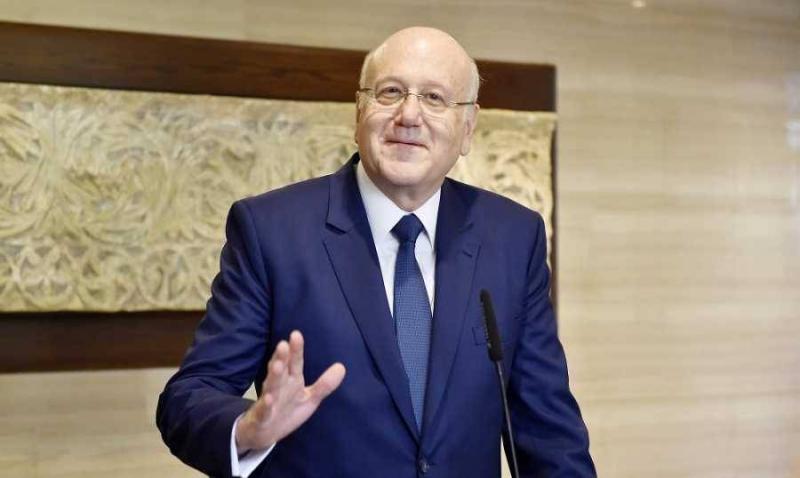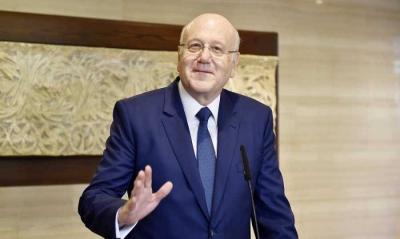The entry of parliamentary discussions via the Finance and Budget Committee concerning the "memorandum of financial and economic policies" attached to the recovery plan approved by the government has cemented the expected qualitative shift in the dynamics of advancing the Lebanese file with the International Monetary Fund (IMF). This transition aims to move from the initially signed agreement, which is currently in an undefined waiting phase, towards promoting a final agreement that enjoys broad national consensus and guarantees the revival of hopes for its presentation within two months for approval from the higher management of the Fund. This shift necessitates, as previously highlighted by "Al-Rai" before Prime Minister Najib Mikati and his economic team participated in the committee meeting last Thursday, hastening the approval of the current year's budget law. This is not only in response to the first conditions set by the Fund but also to create a real breakthrough in restructuring the expenditure and revenue lists in treasury accounts, enabling the government to meet part of the demands of the public sector, which continues its strike due to the severe contraction of salaries against inflation rates that have exceeded one thousand percent, maintaining monthly averages close to about 10 percent on the cumulative index.
According to financial sources involved, the commitment of the Prime Minister and his ministerial and advisory team to expedite the inclusion of "written texts and proposals," as he stated during the committee meeting in response to MPs' questions and concerns, is central to this new dynamic. The MPs considered the "oral" amendments as tantamount to a new plan, particularly regarding compliance with the principle of distributing losses according to responsibilities and proposing the establishment of a multi-source recovery fund to contribute to the restitution of a portion of the deposits exceeding the protection line set at $100,000 for each bank account.
Chairman of the Finance and Budget Committee, Ibrahim Kanaan, confirmed that there are "changes, developments, and substantial matters being worked on, including the creation of a fund and addressing deposits." The united stance of the MPs is that depositors' rights are guaranteed in the constitution and must be ensured through a fair distribution of losses in a recovery plan that has yet to be referred to Parliament. Additionally, they requested the Ministry of Finance to prepare a study within days regarding the exchange rate and its impact on citizens to approve the budget that includes multiple exchange rates.
It appeared that the financial sector was not insulated from the new atmosphere, as evidenced by the correction closer to retracting a letter sent by a consultant to the Banking Association to the fund mission assigned to the Lebanese file. The association then issued a contradictory official statement, indicating "that the Association of Banks in Lebanon wishes to clarify that it does not oppose the agreement between the Lebanese state and the International Monetary Fund in principle, especially as it considers that this agreement is one of the most important gateways to solving the current crisis. However, the association emphasizes that any solution should reconcile the hierarchy of responsibilities and the proportion of loss-bearing, preventing the entire losses caused by the public sector over the years from being imposed on the banking sector and depositors. Efforts should be combined to explore currently available solutions to bridge the financial gap while maintaining deposits and not writing them off."
In line with the positive directions before Mikati's interventions in Parliament, the Board of Directors of the Banking Association reiterated its stance advocating the necessity of reaching an agreement with the International Monetary Fund as the best way to restructure and rehabilitate the economy through the approval of necessary reforms and their implementation. It also confirmed that "the distribution of responsibilities should be done fairly and legally to protect the funds of all depositors in the first place." The state, which has spent the funds, has enough future resources to cover its responsibilities through a structure that preserves state assets, improves their management, and increases their returns, contributing to resolving the depositors' crisis and serving the public good, representing a realistic and constructive step in the reform process.
Moreover, the documented financial data disclosed by the Governor of the Central Bank of Lebanon, Riad Salameh, holds special importance in reconsidering the basis for distributing responsibilities and losses, contrary to previous government trends that suggested placing the bulk of the financial gap burdens on bank depositors and their capital by "writing off" $60 billion from the banks' investments at the central bank, which total about $80 billion.
These figures highlighted that the state consumed amounts equivalent to these figures during the period from 2010 to 2021, with the energy sector spending cash investments of about $24.5 billion, the public sector consuming around $8.3 billion, while import financing for subsidized goods cost nearly $7.6 billion, in addition to the losses incurred by the Central Bank from financing international debt bonds ("Eurobonds"), amounting to approximately $7.4 billion, along with interest costs on these funds nearing $15 billion. Thus, the state has spent about $62.7 billion, based on laws, over 10 years.




